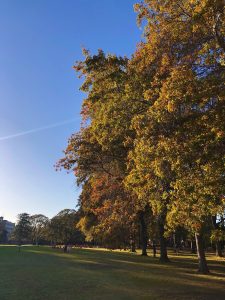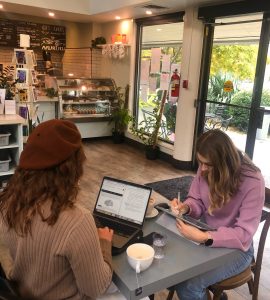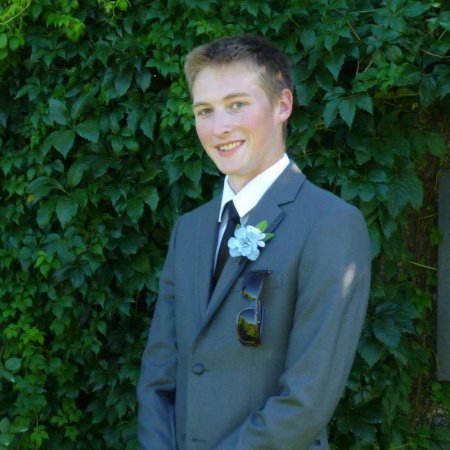How to manage academic burnout in university

Featured here is Molly (She/Her). She is a UVic student in her second year of Greek and Roman studies. She is struggling with academic burnout.
What is academic burnout? And what effect does it have on students’ mental wellbeing?
Academic burnout is when students become overwhelmed by the demands and expectations of their coursework. There is often a lot of pressure placed on university students by their professors, their parents, and even themselves.
Students are expected to maintain high grades in order to continue their studies, qualify for and maintain scholarships, get access to work/volunteer opportunities and get into grad school. It can become exhausting having to constantly meet these harsh expectations.
There are certain times of the year that I personally find more draining, and this is often when academic burnout begins to take over my life. The period of time between November and December is especially difficult, for a variety of reasons.
During this time I feel my motivation and energy levels begin to deplete, in part due to the season and the time change where we gain an hour due to daylight savings. Having to readjust to a new time can really throw me off my regular schedule.
After October comes to an end the temperature starts to drop, the weather becomes increasingly more gloomy and rainy days more frequent. Don’t get me wrong, I love chilly autumn days when I get to bundle up in cozy fall sweaters and sip steamy lattes, but after a while the cold can start to take a toll on my mental well-being.
I find myself wanting to stay in bed on mornings when campus is covered in a thick layer of fog. I’ll assure myself that “if I go back to sleep now, I’ll only miss my morning class”. But missing one class can quickly turn into missing a whole day of lectures, and once that happens then my whole week is thrown off kilter.
Another factor that contributes to academic burnout is the onslaught of assignments, midterms and due dates that occur around this time of year. Mid October to Mid November is a time when professors love to assign the majority of their course work.
Students are not just dealing with one or two requirements a week, they are subjected to multiple from several different classes every day for weeks on end. This continues steadily until November reading break. At this time students are able to briefly come up for a breath of fresh air before diving back into their studies as they prepare for December finals.
Academic burn out during this time not only effects my success in my classes, it also effects my mental well-being, which in turn effects all other areas of my life. This includes my social life, my self confidence, as well as my personal hygiene and the care of my body and mind. Luckily, there are a variety of things that myself, and other students who may also be facing these struggles, can do to help manage academic burnout!
1. There is no ‘right time’ to get back on track
You might feel that since there are only one and a half more months of this semester left there is no point trying to improve things. This is simply not true.
You don’t have to wait till making your New Years resolutions or goal setting for the winter semester. You don’t even have to wait till the start of a new month or week!
Constantly searching for the perfect point in time to turn things around, when you could be spending that time actually making changes, is simply a waste of time. So starting now you can begin to better yourself and your life.
2. Sleep hygiene is a MUST!
It is so easy to fall into the trap of staying up late to cram for those midterms and upcoming finals, but this is just as harmful as not studying at all. Don’t believe me? Do the research yourself.
There are a number of informative studies that have been done in recent years linking decreased sleep amount and quality of sleep to lower test scores and academic performance. Furthermore, lack of sleep can increase levels of anxiety and depression.
So if it’s the night before a big test and you are wondering if you should pull an all nighter or do a couple hours of review and then head to bed, the latter is the best option for your mental well-being AND your grades.
Another thing you can do is set yourself a realistic schedule that you will be able to stick to. Establishing consistency in the times that you go to bed and wake up each day is important. You can do this by getting a sleep tracker app on your phone (there are a wide variety of these available on the App Store that do not cost any money) or do it manually.
I like to add my sleep schedule to my daily planner. At first it might seem silly to schedule the time you want to be in bed at and the time you want to wake up at, but having this written reminder has really helped me form a long lasting and healthy sleep routine.
3. Schedule time for self care

A beautiful sunny fall day on the quad is great place to relax.
As I mentioned in the previous paragraph, I have began scheduling my sleep routine into my daily planner. In addition to keeping track of my sleep schedule I also schedule select times during the week that I dedicate to self care. When I do this I am more inclined to actually follow through.
It is very easy to get so absorbed in your school work and extra-curricular commitments that you fail to take time to look after your body and your mind. But I encourage all students to take the time they need every week to do things that bring them joy and allow them to recharge, whether that means doing an hour long skin care routine, or going on a walk in nature while listening to your favourite podcast or music, or taking a nice long shower. I can assure you that those seemingly ‘meaningless’ things that others might view as a waste of time are in fact vitally important.
Something that I like to do to clear my head is go for a nature walk around Mystic Vale or Finnerty Gardens. These are both on campus and feature a variety of foot paths for me to explore.
4. It’s okay to ask for help
In high school teachers like to tell students that “once you get to university you are on your own, you’ll be an adult so it’s up to you to figure everything out!”
The reality is when you transition from high school to university you do not magically transform into an all knowing adult who knows how to manage the many stressors associated with post secondary life. And guess what? Most professors acknowledge this and are willing to give you a helping hand and accommodate your needs!
It is recommended that if you are struggling to meet the deadline for an assignment that you email your professor or their teaching assistant a week or a at least a couple days before the due date. This way the professor is given sufficient time to alter the deadline for you.
When you are open with your professor about the difficulties you are going through and ask them for a reasonable extension they are likely to grant you one, so when in doubt ask (the worst they can say is no). Professors and their teaching assistants also host office hours once or multiple times a week where they encourage students to attend and ask questions about the course materials or requirements. It can seem intimidating to show up, but once you do you will realize that office hours are there to help students like you!
5. Finding the resources right for you
Even with help from professors, you might still struggle to meet deadlines and find motivation to complete course work. At that point it may be a good idea to seek out more support elsewhere.
If you are a first year student living in residence at UVic the first person you should reach out to is your Community Leader. Community Leaders are there to help students with a variety of things, one of which is finding resources for residents. This includes mental health support, disability and health recourses, and academic assistance and financial planning. If your Community Leader does not know where to direct you, they will be able to find someone who can.
If you are not living in residence there are four great places to start when it comes to receiving support:
- The UVic student wellness centre is a clinic located on campus that has doctors, nurse practitioners, councillors, psychiatrists, and nutritionists. It is easy to schedule an appointment in person or online and begin getting the help you need.
- The UVSS is located in the Student Union Building on campus. This is a student run facility that offers a wide variety of programs. This includes support for students with disabilities, LGBTQ2IA+ students, students who have faced sexualized violence, and BIPOC students. They also have a campus food bank/free store and peer support centre where you can drop in and receive judgment free support from students who are in training to become counsellors.
- The Centre for Accessible Learning is a service for students who require accommodations in order to succeed in their courses. To gain access to this service you are required to complete an application that includes verification from a doctor and do a brief intake. Once you are registered you will be given accommodations for all your classes that fit with your personalized needs.
- The Academic Advising Centre is located in the Jamie Cassels Centre. You can book online or in person meetings with your advisor to discuss any issues you may be having in regards to your education. If you are also struggling with financial difficulties or have questions about career paths, they will be able to direct you to the appropriate resourses.
6. Spend time off campus

Alana (she/her) is a fourth year Biomedical Engineer studying at Moka House with her friend Dominika (she/her) who is a fourth year Psychology student.
A great way to get out of an academic slump is a change of scenery. When you spend all your time on campus studying and attending lectures and labs, your day to day life can start to become monotonous.
This is especially true for students who also live in residence at UVic. As someone who lives on campus, I can go weeks without ever leaving.
While there are so many great places on campus to hang out, eat, study, have fun, and relax, there are so many excellent places to explore off campus as well. I encourage everyone to venture outside of the UVic micro-nation and discover what greater Victoria has to offer.
If you don’t have the energy to go all the way downtown, there are some great spots close by! My favourite places to study or relax with friends are located in Cadboro Bay which is just a short ten minute walk from UVic.
Moka House is a quaint coffee shop that is well loved by both locals who live near by and university students who are looking for a place to study. It offers high speed wifi and a wide selection of delicious drinks and baked goods, many of which are gluten free and/or vegan! Because of its popularity it can sometimes be hard to find a place to sit, but there is also outdoor seating available.
Cats Coffee and Cake has a location in Downtown Victoria, but recently it opened a second location in Cadboro Bay. This is a great place to go when you want a sweet treat after a long week of studying. They offer cakes that are available by the slice or in a cup. They also have adorable bite sized animal macaroons and a selection of sweet and savoury croissants, as well as delicious drinks.
7. Remember that your academic success does not determine your self worth
Feeling academically burnt out can often cause students to have feelings of inferiority. They might equate their success in school to their overall worth as an individual.
Acknowledge that while school is important, there are many other things that make your life meaningful, which is why it is so important for students to engage in other activities outside of the academic realm.
Remember that success in university can come from a variety of things such as; developing strong social relationships, exploring your independence as a young adult, and learning how to find balance while caring for your mind and body.
It is also important to remember that what you are feeling in this moment will pass and it is likely that most of your friends and peers have felt this way at one point in their academic journey.



